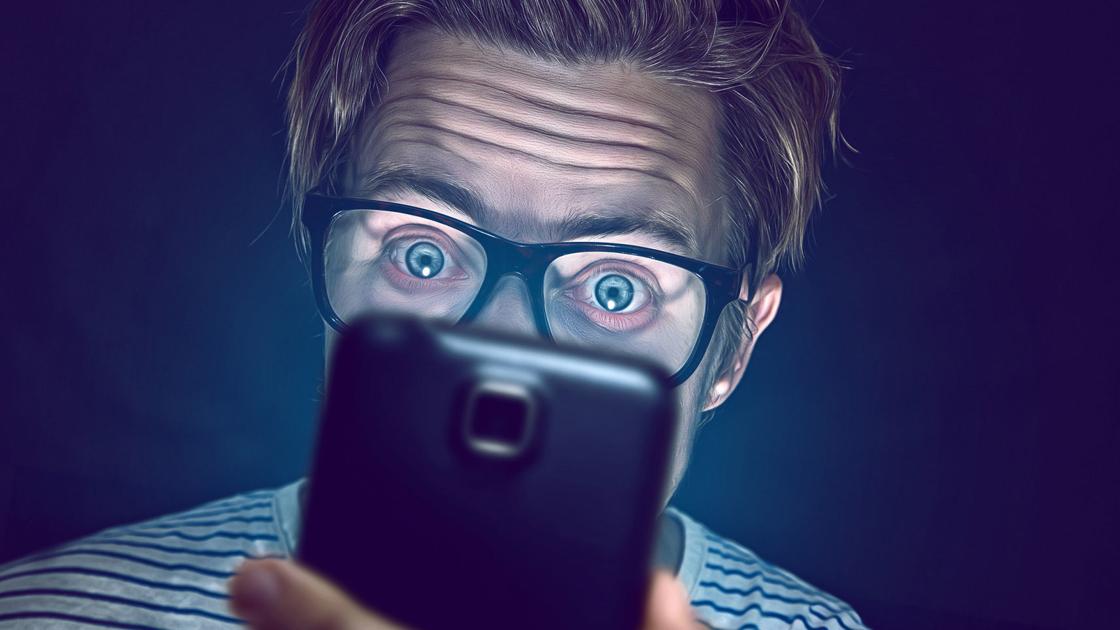Last week, while sitting and reading on my apartment balcony, I felt my cell phone slip from my pocket, then heard it skitter across the decking. A moment later, a sickening smack from the concrete 20 feet below.
Humiliatingly enough, there were witnesses. “Hey, if that phone still works,” a guy in the nearby dog park called over, “I want to know what kind it is!” No such luck. My iPhone7 had been reduced to a paperweight.
(Note to millennials: A paperweight is an object of some heft that’s used to hold down papers.)
(Second note to millennials: Paper is a material made from trees that … oh, never mind.)
In a few days, I had a new phone and was back on the grid. But those few days were time enough to provide a bracing wake-up call about just how far even this 50-something consumer has gone down the rabbit hole, technologically speaking.
I’m still astounded at how thoroughly the temporary absence of a flat chunk of metal and glass turned my life upside down. I hadn’t backed up anything in the Cloud (paranoia, combined with laziness), so I lost, irretrievably, phone numbers and addresses I’d had for years, passwords to my bank account and utilities, pictures of my kids that didn’t exist anywhere else, schedule reminders that will have me missing obligations for months, brilliant column ideas I’ll never remember, and quite possibly a few friendships.
I searched out alternate contact information for friends and acquaintances I feared might think I was ghosting them. I found myself practically breaking out in hives from being unable to follow the news minute to minute wherever I was. I grew fascinated with the new reality that those trivial questions that pop up in everyday conversation (Hey, when did ‘Gilligan’s Island’ first air?) can, in fact, just go unresolved. A Google-less world, it turns out, keeps spinning.
The whole experience leads me now to type words I’m not accustomed to typing: Maybe Josh Hawley is right.
Hawley, Missouri’s Republican junior senator, has sponsored legislation designating “social media addiction” as a national problem in need of a federal solution. His bill appears doomed, and it should be. It’s part of his campaign against a social media industry he believes is out to get conservatives. Which is, in a word, ridiculous. And experts haven’t confirmed that the “addiction” he seeks to confront — with some onerous new impediments to internet usage — even exists.
Though now, after days of navigating the mother of all First-World problems, I have to wonder.
I will say, a lot of the withdrawal I experienced had less to do with social media (which, after all, was still available through my home and office computers — though my four-block walk to work became excruciatingly long) than with other features of the phone.
Think of how much of our lives we keep in our pockets these days. Without my GPS, a brief out-of-town trip felt unmoored and reckless, like a teenager driving blindfolded on a dare. Making a grocery list — previously a matter of looking through the fridge while voice-texting myself — felt practically medieval with the addition of a pen and paper.
I don’t remember ever making a decision to give up wristwatches, but I quickly realized my phone had not only become my primary connection to time, but had made me obsessive about it. I own (I think) two wristwatches, neither of which I’ve seen in years. I tried to find them the morning after The Great Drop, then gave up and just accepted that, for awhile, I would lurch through the world knowing only approximately what time it was. It’s odd how vast the gulf is, inner-synchronicity-wise, between “4:06 p.m.” and “late afternoon.”
More jolting than any of that was the empty feeling of disconnectedness from my world — of being outside the global conversation that, more than I had known, provides a constant, comforting hum to my days.
Sitting at a bar after work, I found I literally didn’t know what to do with my fingers, or my eyes. A beer requires only so much hands-on attention, and the other patrons were all staring down at their phones, lost in Twitter or Facebook or whatever.
So I watched the wall of TVs. How limited and limiting — how small — that once-towering medium seems today. As societal obsessions go, the internet is a vast improvement. So there’s that.
I’m not going to end this with some vow of technological detox. I’m back on the grid and I’m glad.
Still, it’s disturbing to think we’ve so completely entrusted to technology such an important part of ourselves: our human connections. Like those abandoned wristwatches, I don’t remember ever making a conscious decision to do that. It just kind of happened.















-225x125.jpg)


